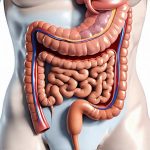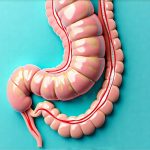Post-infection digestive issues are surprisingly common, extending far beyond the initial sickness itself. Many individuals find themselves grappling with lingering symptoms like nausea and reduced appetite even after seemingly recovering from viral or bacterial infections – a phenomenon often referred to as post-infectious IBS (irritable bowel syndrome) or simply ‘long COVID’ digestive effects. These aren’t signs of continued infection, but rather indications that the gut microbiome and digestive processes have been disrupted, requiring time and targeted support to restore balance. Understanding why this happens is crucial for effective recovery, moving beyond just symptom management towards genuine healing.
The complexity lies in the intimate connection between our immune system, nervous system, and gut health – often referred to as the gut-brain axis. During an infection, the body’s resources are heavily focused on fighting off the pathogen, sometimes at the expense of other physiological processes. This can lead to inflammation throughout the digestive tract, alterations in gut motility (the speed food moves through), and changes to the composition of the microbiome – the trillions of bacteria that live within us. Even after the infection subsides, these disruptions don’t always resolve immediately, leading to ongoing symptoms that can significantly impact quality of life. It’s important to remember that recovery is rarely linear; setbacks are normal, and patience is key. If you struggle with appetite or feel unwell even after illness, exploring how digestive tests help explain low appetite can be a helpful next step.
The Role of Microbiome Disruption
The gut microbiome plays a pivotal role in digestion, nutrient absorption, immune function, and even mental health. An infection, particularly one involving antibiotics or prolonged illness, can dramatically alter the balance of this ecosystem. – Antibiotics, while essential for fighting bacterial infections, indiscriminately kill both harmful and beneficial bacteria, leaving space for opportunistic pathogens to flourish. – Viral infections can directly damage the intestinal lining, impacting microbial diversity and creating a more permeable gut (often referred to as ‘leaky gut’). – Inflammation caused by the infection itself further disrupts the microbiome’s delicate balance, favoring pro-inflammatory species over those that promote health. This imbalance can lead to increased gas production, bloating, altered bowel habits, and ultimately, nausea and reduced appetite. Re-establishing a healthy microbial community is therefore central to post-infection digestive recovery. Understanding why gut dysbiosis can impact overall health is key to addressing these issues.
Restoring the gut microbiome isn’t about simply taking probiotics; it’s about cultivating an environment where beneficial bacteria can thrive. This involves more than just supplementation; dietary changes play a crucial role. – Increasing fiber intake provides food for beneficial bacteria, promoting their growth and diversity. – Fermented foods like yogurt (with live cultures), kefir, sauerkraut, and kimchi introduce probiotic bacteria directly into the gut. – Reducing sugar and processed food consumption minimizes fuel for harmful bacteria and reduces inflammation. While probiotics can be helpful adjuncts to these strategies, they are most effective when combined with a supportive diet and lifestyle. The microbiome is unique to each individual; what works for one person may not work for another, highlighting the importance of personalized approaches.
Nervous System Sensitization & Post-Infection Nausea
Nausea after an infection isn’t always directly related to gut dysfunction; it can also stem from a heightened sensitivity within the nervous system – specifically the vagus nerve which connects the brain and gut. During illness, the body experiences significant stress, triggering the release of cortisol and other stress hormones. This prolonged activation of the sympathetic nervous system (the ‘fight-or-flight’ response) can lead to visceral hypersensitivity – an increased sensitivity to signals from the digestive tract. Even normal digestive processes like peristalsis (muscle contractions that move food along) can be perceived as unpleasant or nauseating, triggering a cycle of anxiety and avoidance around eating.
This sensitization can create a feedback loop where nausea leads to reduced appetite, which further weakens the body’s ability to heal and restore gut function. The brain begins to associate food with negative sensations, leading to aversion and potential development of disordered eating patterns. Addressing this requires not only calming the digestive system but also addressing the nervous system through techniques like – Deep breathing exercises: Activate the parasympathetic nervous system (the ‘rest-and-digest’ response) – Mindfulness meditation: Reduce anxiety and improve emotional regulation – Gentle exercise: Release endorphins and reduce stress hormones – Cognitive Behavioral Therapy (CBT): Address negative thought patterns related to food and nausea. Breaking this cycle is essential for regaining a healthy relationship with food and restoring appetite. Often, managing nausea during stressful times can significantly improve recovery.
Understanding the Vagal Nerve Connection
The vagus nerve acts as a two-way communication highway between the brain and gut, influencing everything from digestion and heart rate to mood and immune function. During an infection, inflammation can directly impact the vagus nerve, disrupting its signaling pathways and contributing to symptoms like nausea, bloating, and abdominal pain. – Vagal Tone refers to the activity level of the vagus nerve; higher tone is associated with better health and resilience. Infections and chronic stress can lower vagal tone, reducing the body’s ability to regulate digestive processes and cope with stress. – Stimulating the vagus nerve can help restore balance and improve gut function. Techniques like gargling, humming, cold water immersion (briefly), and mindful breathing all activate the vagus nerve, promoting relaxation and improving digestion.
The Role of Gut Motility
Gut motility – the rhythmic contractions that move food through the digestive tract – is often disrupted during and after an infection. – Infections can cause temporary slowing down or speeding up of gut motility, leading to symptoms like constipation, diarrhea, bloating, and nausea. – Inflammation and microbiome imbalances further contribute to altered motility patterns. – Restoring normal gut motility requires a multi-faceted approach including hydration, fiber intake, and gentle movement. Prokinetic agents (medications that stimulate gut contractions) may be prescribed in some cases but should be used under the guidance of a healthcare professional.
Dietary Strategies for Recovery
Diet plays a significant role in post-infection digestive recovery, focusing on gentle, easily digestible foods and avoiding potential triggers. – Low FODMAP diet: Temporarily reducing fermentable carbohydrates (FODMAPs) can alleviate symptoms like bloating and gas by minimizing microbial fermentation in the gut. However, this should be implemented under the guidance of a dietitian to avoid long-term nutritional deficiencies. – Smaller, more frequent meals: Reduce the burden on the digestive system and prevent overwhelming the stomach. – Hydration: Adequate fluid intake is essential for maintaining healthy digestion and preventing constipation. – Focus on nutrient-dense foods: Prioritize whole, unprocessed foods rich in vitamins, minerals, and antioxidants to support healing and immune function. Avoid highly processed foods, sugary drinks, and excessive caffeine or alcohol, as these can further irritate the digestive system. Remember that dietary needs vary; listening to your body and adjusting based on individual tolerance is paramount. Sometimes even small portions can cause discomfort, highlighting the importance of mindful eating. Additionally, consider that poor gut health may be contributing to feelings of brain fog and low motivation. Finally, paying attention to sleep quality and digestive motility can offer another pathway for relief.


















